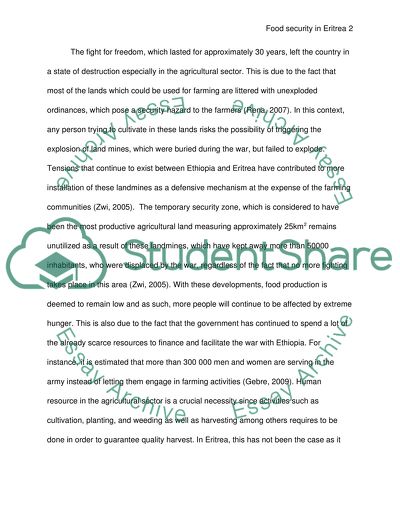Cite this document
(“Food security in Eritrea Essay Example | Topics and Well Written Essays - 1500 words”, n.d.)
Retrieved from https://studentshare.org/environmental-studies/1410771-food-security-in-eritrea
Retrieved from https://studentshare.org/environmental-studies/1410771-food-security-in-eritrea
(Food Security in Eritrea Essay Example | Topics and Well Written Essays - 1500 Words)
https://studentshare.org/environmental-studies/1410771-food-security-in-eritrea.
https://studentshare.org/environmental-studies/1410771-food-security-in-eritrea.
“Food Security in Eritrea Essay Example | Topics and Well Written Essays - 1500 Words”, n.d. https://studentshare.org/environmental-studies/1410771-food-security-in-eritrea.


